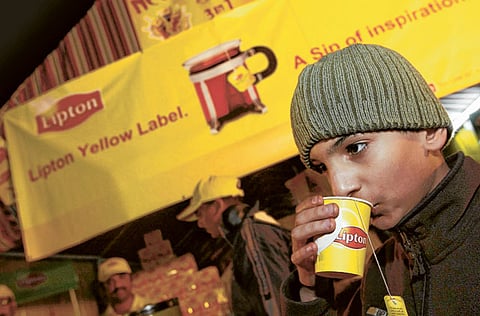What makes some brands return to full glory even in uncertain times
It is no secret that brands that have learnt this well come up trumps fastest

If I borrow from author Simon Sinek’s thinking that business is an “infinite game” that companies play, then recession is just another event that happens in that game. Even in most challenging of times, brands need to remember they are playing the infinite game.
They must keep one eye focused on the long term, even while managing the short-term crisis of loss of sales. However, this is clearly not as simple as it sounds, and the majority of brands don’t navigate recessionary times well.
Kantar BrandZ data from this region and around the world tells us that after the 2008-09 recession, strong brands recovered nine times faster than weaker brands. Those brands that were meaningfully different and were able to successfully amplify that meaningful difference were still affected by the downturn - but when the economy began to grow, they were much better placed to recover quickly.
In many cases, the stronger brands were also the larger, more salient brands within their categories. Our analysis of purchase data from our consumer panels in Saudi Arabia clearly shows that the top 20 per cent of brands recovered sales volumes six times faster than the bottom 50 per cent brands.
Instant recall
We know that salience – the power of a brand to spring to mind when a consumer thinks of a category – is a strong driver of brand choice in the Middle East. Salience becomes especially critical in times of crisis because familiarity and trust become more important, and brands that have strong mental availability tend to be more familiar and trusted.
To ensure sustained salience, brands need to continue communicating, even during recessionary times. Analysis of our tracking database reveals that those brands punching above their weight on communication awareness as compared to their market share are six times more likely to see an increase in market share.
Brands need to think of “continuing to advertise” in difficult times, not as spending but as an investment, and one that pays dividends over the long term. We see that when brands sustain their total brand communications awareness, they maintain their brand health better than brands that don’t.
Of course, it is also a reality that budgets are under pressure during such times, so brands need to look for the most efficient and effective means of staying connected with their consumers. The means of achieving this are not just traditional media, which can typically burn through budgets, but also from a variety of other media and consumer touchpoints that the brand has at its disposal.
Our work in MENA clearly shows that more than 40 per cent of the impact that brand campaigns deliver comes from media synergies. So brands need to think of how best to optimize the impact through a combination of media.
Not everything boils down to spending
• Brands need to anticipate evolving consumer needs and tensions which the brand can address so that they continue to stay meaningful. Brands like Hyundai did this well during the 2009 downturn when they offered the assurance programme to customers, which meant they could return the vehicle if they lost their jobs.
• It also becomes important to reframe price as value, as Xbox did during the 2009 recession with messages like ‘Big fun, bigger value’. Or like Lipton did in the MENA region by communicating on the strength and personalization aspects of its tea bags, and actively pushed smaller formats and packet tea in retail.
• Brands also need to reconfigure the basics of their business and customer experience, like Delta Airlines did by controlling its cost base through multiple actions coupled with an improved cabin experience so that customers were willing to pay a little more.
Ultimately, it is not a one-size-fits-all formula, but brands who put their customers first, keep a constant connection with their customers by communicating with them and are willing to reconfigure and reinvent their business will succeed in difficult times.







